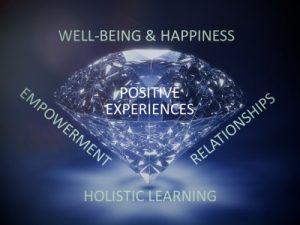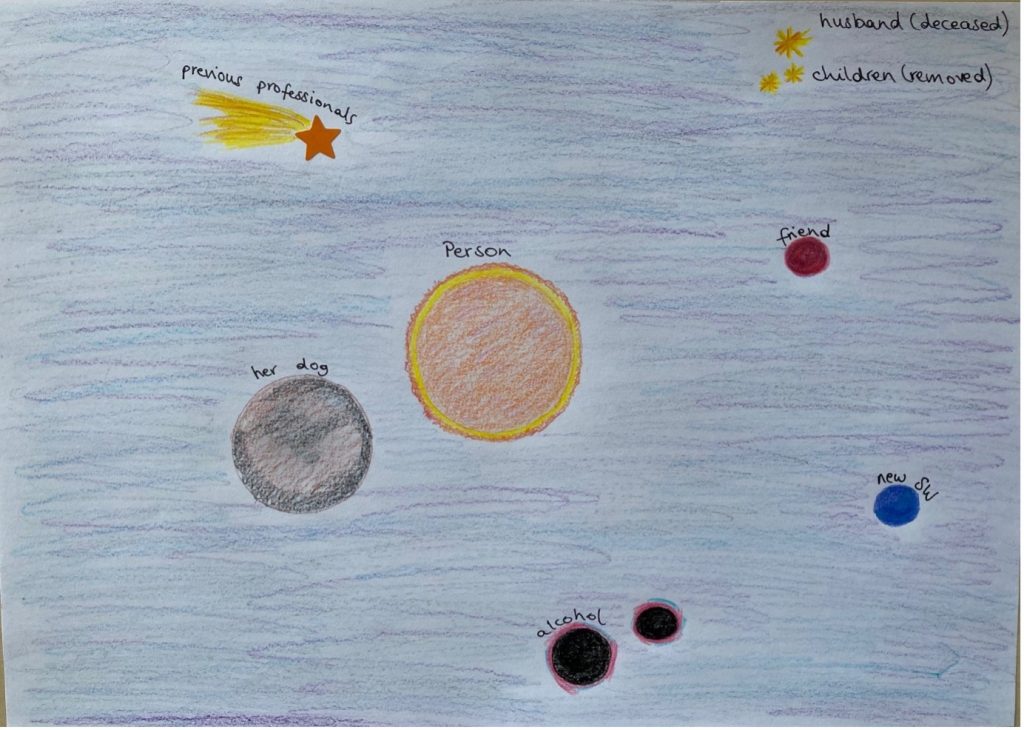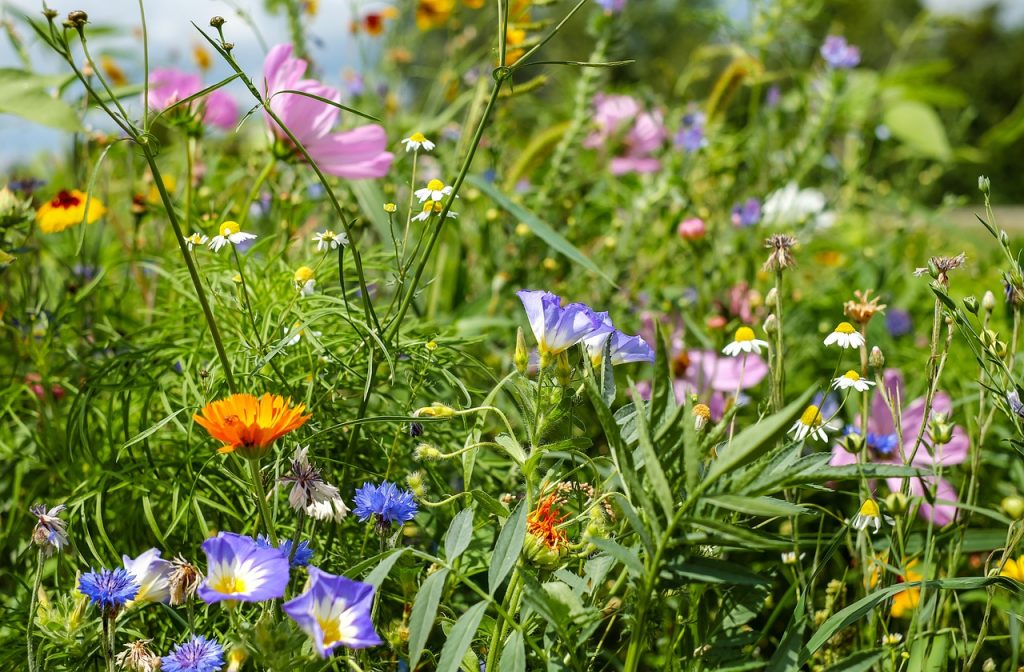by Andy Carter & Maggie Bagley
 We’ve all heard the phrase ‘a rough diamond’ to describe something that has potential which is not immediately obvious at first look. The same could be said of human beings who do not have access to the best conditions for their self-development. Relationship-Centred Practice sets out to realise the potential in all of us to be a shining diamond.
We’ve all heard the phrase ‘a rough diamond’ to describe something that has potential which is not immediately obvious at first look. The same could be said of human beings who do not have access to the best conditions for their self-development. Relationship-Centred Practice sets out to realise the potential in all of us to be a shining diamond.
The Care Act 2014 section 1 creates a general duty on local authorities exercising community care functions to promote the well-being of the individual. The Diamond Model is a strengths-based approach with an overarching aim of nurturing long-lasting holistic well-being and happiness for people by considering four core aims that provide a scaffold for organic personal growth and in doing so supports that duty in practice.
 Well-being and ‘happiness’ are sometimes seen as one and the same, but in our understanding they are notionally different: happiness describes a present state whereas well-being describes a long-lasting sense of physical, mental, emotional, spiritual and social well-being. In combination we can get a holistic view of a person’s well-being and happiness.
Well-being and ‘happiness’ are sometimes seen as one and the same, but in our understanding they are notionally different: happiness describes a present state whereas well-being describes a long-lasting sense of physical, mental, emotional, spiritual and social well-being. In combination we can get a holistic view of a person’s well-being and happiness.
Importantly, well-being and happiness are very individual and subjective: what causes happiness is highly individual, meaning that it is context-specific and highly responsive to the individual rather than adopting a one-size-fits-all approach. In practice it is important to seek to understand the person we are working with, and then work alongside them to achieve this. This means simple things like joy, laughter and kindness are at the centre of relational practice.
Holistic Learning is much more than what happens in formal education. It is a process of realising our own potential for learning and growth at any point in our lives, which can take place in every situation that offers a learning opportunity. By experiencing these learning opportunities, people get a sense of their own potential and how they have developed. As we are all unique, so is our potential for learning and our way of learning and development. These learning opportunities can be seen in most aspects of daily life such as learning how to cook a new recipe or having a go at belly dancing (something you always wanted to try). It’s a matter of looking for ways in which we can stimulate people’s learning.
Meaningful supportive Relationships are essential to achieve the elements mentioned above. Only through genuine connections can a person experience that someone cares for and about them, that they can trust somebody. This is about growing and maintaining social skills and being able to have strong positive interactions with those around them. Therefore, the relationship must be a personal authentic relationship between human beings, making use of our personalities and bringing our whole selves to the work we do. This can be as simple as remembering how someone likes to have their tea or which is their favourite biscuit.
Empowerment, together with relationships, is crucial in order to ensure that an individual experiences a sense of control over their life, feels involved in decisions affecting them, and is able to make sense of their own universe. Empowerment also means that the individual is able to take on ownership and responsibility for their own learning and their own well-being and happiness, as well as their relationship with the community to the maximum that they are able. This could be taking time to really understand their needs in detail or chairing and organising resident/service user meetings.
Positive experiences are at the centre of the diamond and helps us to realise these core aims. The power of experiencing something positive – something that makes someone happy, something they have achieved, a new skill they have learned, the caring support from someone else – has a double impact: it raises the person’s self-confidence and feeling of self-worth, so it reinforces their sense of well-being, of learning, of being able to form a strong relationship, or of feeling empowered; and by strengthening their positives the person also improves their weak sides, so that negative notions about their self disappear.
Perhaps by having a pen pal and receiving letters or entering home grown veg into the local show.
This blog has been published in NAPA’s The Activity Providers Magazine Summer 2021 issue.





